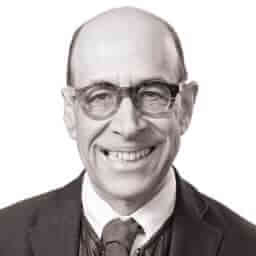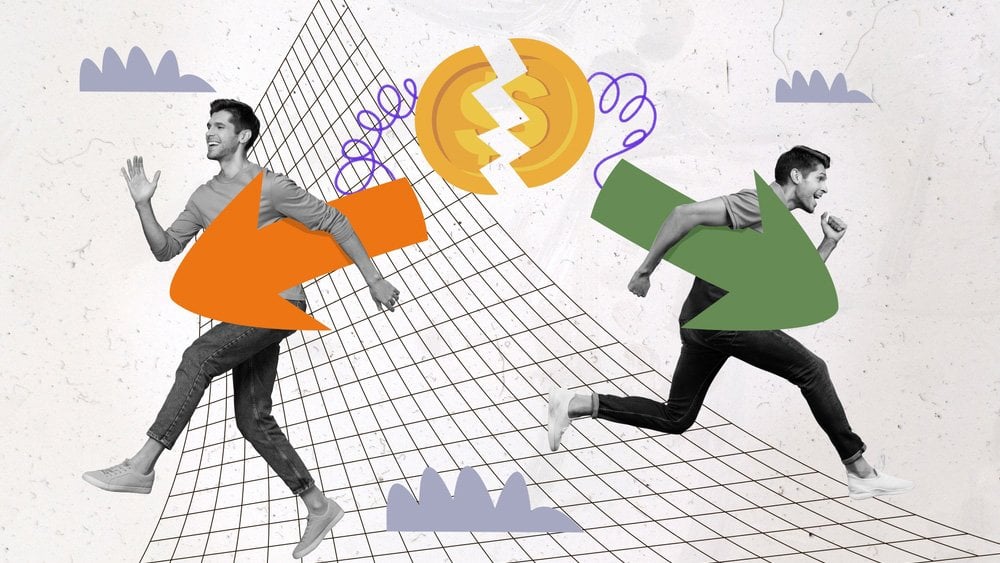“You don’t need to become an investor. You were born one.”
– Robinhood TV commercial, Super Bowl LV
We are not born investors.
We are actually born to make stupid, self-destructive mistakes.
And that’s why the promise of inherent financial sagacity – which Robinhood attempted to seduce the naïve investing public with during the Super Bowl – is a dangerous fallacy.
Lottery-izing America’s financial future is not a good thing. Daytrading is, for most people, daydreaming.
Most of the criticism of the spot was its unfortunate timing, on the heels of the GameStop-meets-Reddit conflagration. As Mashable said, “the ad from Robinhood almost seemed designed to make people angry. The message of the ad is literally ‘we are all investors’ just after it made headlines for denying people the chance to invest.”
But the deeper problem goes beyond Robinhood’s investor lockdown. The commercial – which was conceived before the horde-forced short squeeze – is irresponsible because it is appeals to, and manipulates, our cognitive biases. In fact, the untruths that Robinhood is spreading in the interests of “democratizing” access to Wall Street are as dangerous in the financial world as the anti-maskers and anti-vaxxers are in the public health world.

The science of behavioral economics has taught us that even when we work hard to invest smartly, we make bad decisions because our brains are wired for a distant primitive past requiring quick survival choices. That’s the “fast-brain” at work, whose quick-conclusion, cortex-free reflex is described with great depth and acuity in Nobel-Prize winner Daniel Kahneman’s “Thinking, Fast and Slow.” Even professional investors fall victim to the confirmation bias, loss aversion, and the endowment effect. Imagine what can happen to the unaware novitiate.
Robinhood’s false promise of an inherent genetic gift of financial wisdom is dangerous because it flatters our belief in the excellence of both our instincts and judgements; it are also ignites the Dunning-Kruger effect, also called the overconfidence factor. This hard-wired mental habit is related to the Gambler’s Fallacy, which Investopedia describes as “when an individual erroneously believes that a certain random event is less likely or more likely to happen based on the outcome of a previous event or series of events.”
So if you believe you are born an investor, then your brain convinces you that what happened in the past – like the random occurrence of GameStop shares rising meteorically – will occur again. Equally evil is the insidious nature of Robinhood’s alluring promise that savvy investors aren’t made – but are born. That’s gasoline on the fire of a growing societal attitude that hard-earned wisdom is just an elitist trope. When Trump said that he knows more than “anyone else” about a full 19 different issues, according to the Washington Post’s tally, he is channeling something deep in modern America’s digitized life. It’s like all of those people who challenge their physician’s opinion with a soundbite from WebMD.
Robinhood has very specific marketing goals which were on full view to the global Super Bowl audience– to attract more people onto their platform, to create the steamy, erotic allure of profits available to all, requiring no more sophistication or training than what it took to file for your Social Security number. Why be a sideline schmuck, letting others make giant returns overnight? Why stop the magic ride at GameStop?

Of course, it’s the opposite of what Robinhood avers that is really true. Study and analysis may not be guarantees of success, but trusting one’s instincts can be catastrophic. Yes, before you interrupt and say “what about dart-throwing triumphing over hedge funds?”–there’s a difference between recognizing randomness and believing in your own infallibility. In fact, dart-throwing is the opposite of Dunning-Kruger overconfidence; it concedes the futility of expertise.
I can’t imagine a positive outcome to Robinhood’s efforts to convince people that making money in the stock market is intuitive and equally distributed – and achievable by all – rather than it being something which requires thoughtful analysis and perspective best acquired by experience and time. That’s why so many financial experts – including Warren Buffett – advise you to put your retirement money in index funds, and eschew Ralph Kramden-esque get-rich-quick schemes, no matter how they are branded.
The legacy financial services companies committed the opposite sin – they presumed they held all the intelligence, and frustrated retail investors by gouging them on stock trading – until the discount brokers broke their model. In many ways, that financial praetorian guard is responsible for this new, inevitably self-destructive investment populism. Nonetheless, a “disrupter” like Robinhood, with its cleverly allusive name, should feel an obligation to be truthful, to not mislead, to not feed our egos and primitive brains, but rather to starve them.
In an era where millions are easily seduced by immediate gratification and self-flattery, and suspicious of any kind of earned expertise, this might be the most dangerously misleading commercial in Super Bowl history. In 2107, Tom Nichols wrote a worthwhile book called “The Death of Expertise – The Campaign Against Established Knowledge, and Why It Matters.” Robinhood is taking a page, if not a chapter, from that book. Rather than helping Americans achieve financial freedom, if its free trading platform is successful in this faux empowerment, that could create a wealth Armageddon.
















